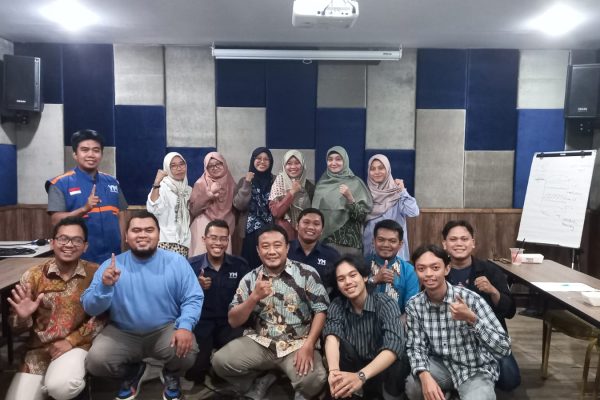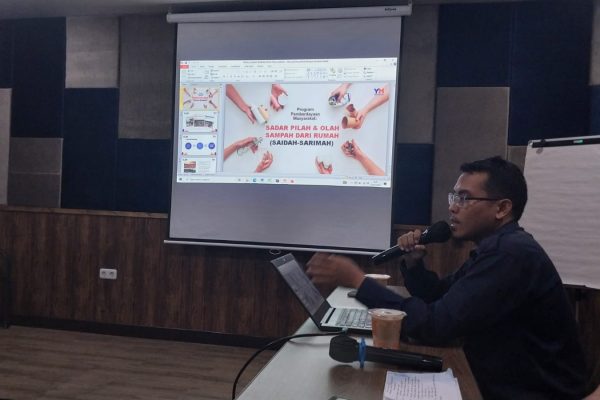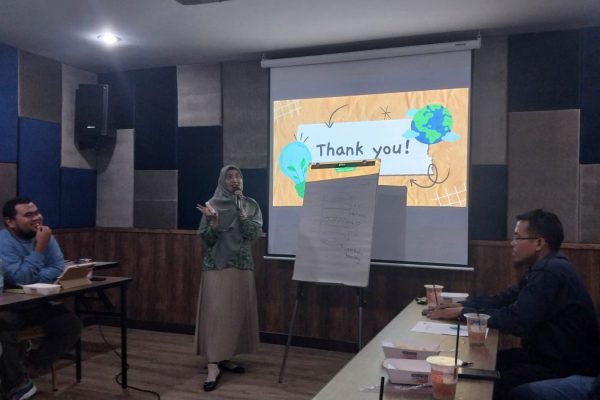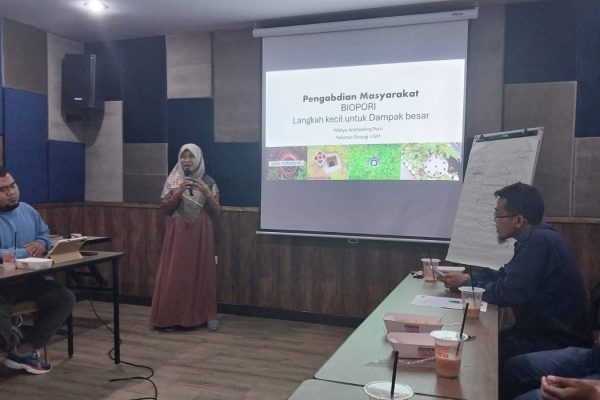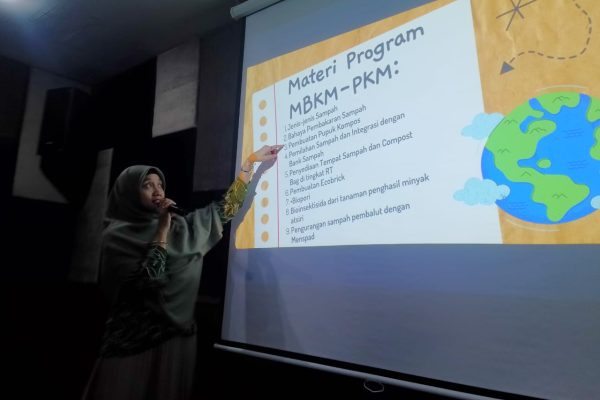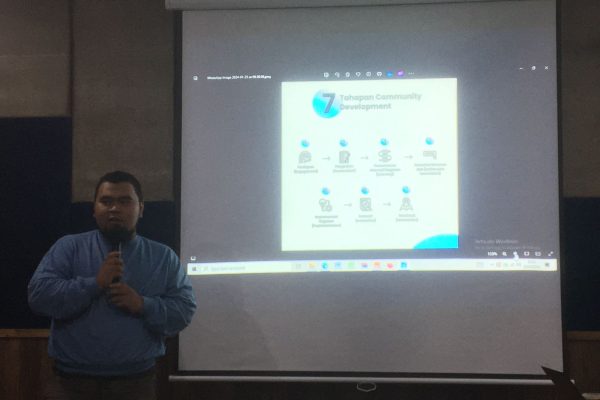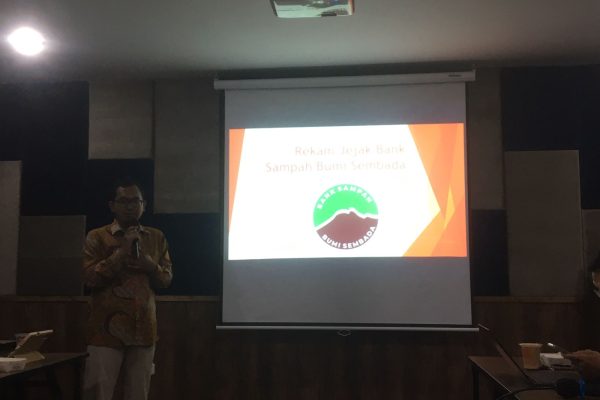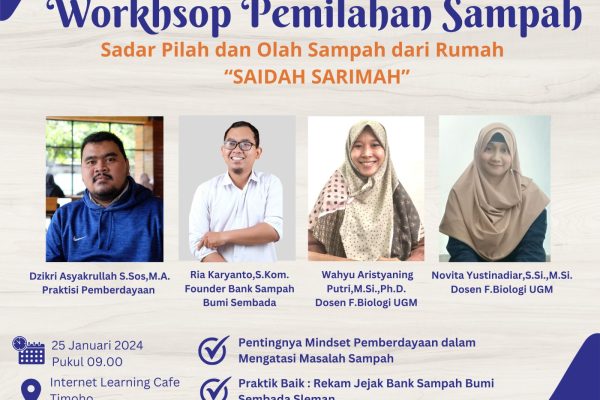On Thursday, 25 January 2024, a Waste Sorting Workshop titled “Conscious Sorting and Processing of Waste at Home (SAIDAH SARIMAH)” was conducted in collaboration between the Volunteer Independence Companions, the Yatim Mandiri institution, Bumi Sembada Waste Bank, and the Faculty of Biology UGM at Internet Learning Cafe Timoho from 09:00 AM to 12:00 PM WIB and was attended by students and staff from Yatim Mandiri Institution. The workshop’s content was delivered by Dzikri Asyakrullah, S.Sos, M.A., as an Empowerment Practitioner, Ria Karyanto, S.Kom, Founder of Bumi Sembada Waste Bank, Wahyu Aristianing Putri, M.Sc., Ph.D., and Novita Yustinadiar, S.Si., M.Si., as faculty members of the Faculty of Biology UGM. The workshop covered the importance of an empowerment mindset in addressing waste issues, the best practices and track record of the Bumi Sembada Waste Bank Sleman, community service discussing the synergy between academics and practitioners with the implementation of composting and biopore creation.
This time, Yatim Mandiri institution innovatively provided assistance in the form of community empowerment programs, aiming for a more significant impact through collaboration with practitioners and academics to address waste issues together with Bumi Sembada Waste Bank. This activity aligns with the PKM-MBKM and Desa Mitra programs that will be implemented by the Faculty of Biology in 2024, with the hope that many villages will become partners with Bumi Sembada Waste Bank. The Bumi Sembada Waste Bank was established in 2023 and was located in Sukoharjo Village, Padukuhan Besi, Sleman. There were 75 categories of waste that the community can sell to the waste bank, aiming to motivate the community to sort waste more diligently, thereby improving the economy and helping to address waste problems. Mr. Zikri outlined seven stages of community development, 1. Preparation: Aligning visions and missions, 2. Assessment, 3. Planning alternative activities, 4. Formulating action plans, 5. Implementing activities, 6. Evaluation, 7. Termination. It was emphasized that there should be involvement, participation, and clear role distribution in an empowerment organization, involving ideas from all members to ensure consistency in community service tasks. The outcome of this activity was the initiation of collaboration among all parties involved in waste bank distribution and the creation of a Zero Waste Management guidebook to be shared with partner villages.
This collaboration initiative was a contribution from the Faculty of Biology UGM to the goals of sustainable development (SDGs), specifically in the development of inclusive education (SDG 4) and sustainable cities and communities (SDG 11) through continuous collaboration and cooperation by building partnerships to achieve goals (SDG 17). Hopefully, this positive synergy can enhance healthy and prosperous living (SDG 3).

